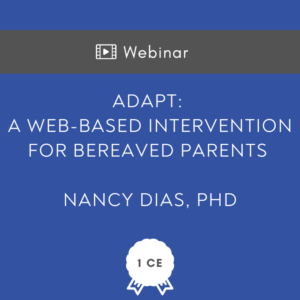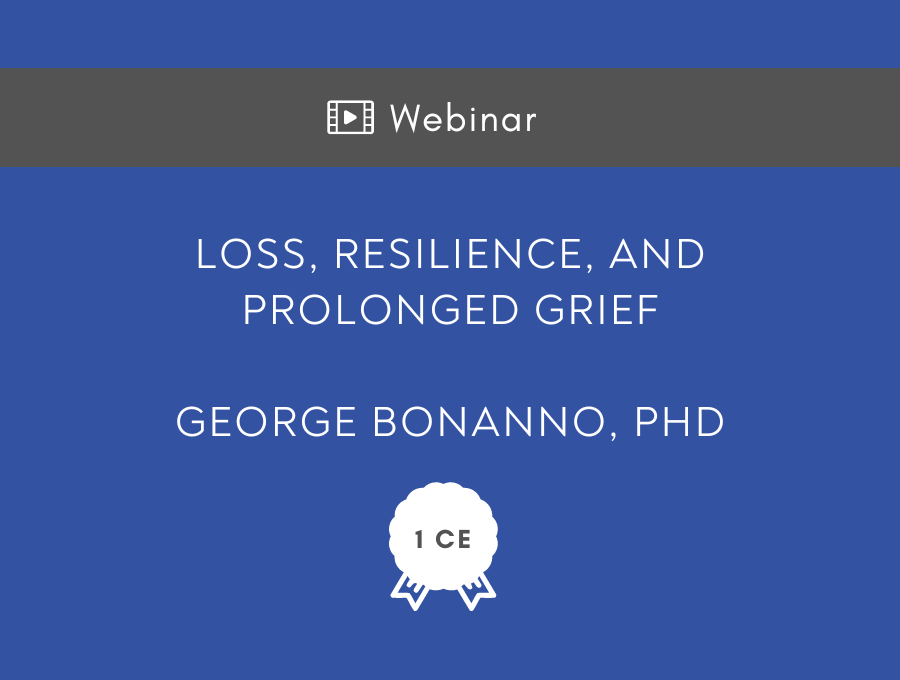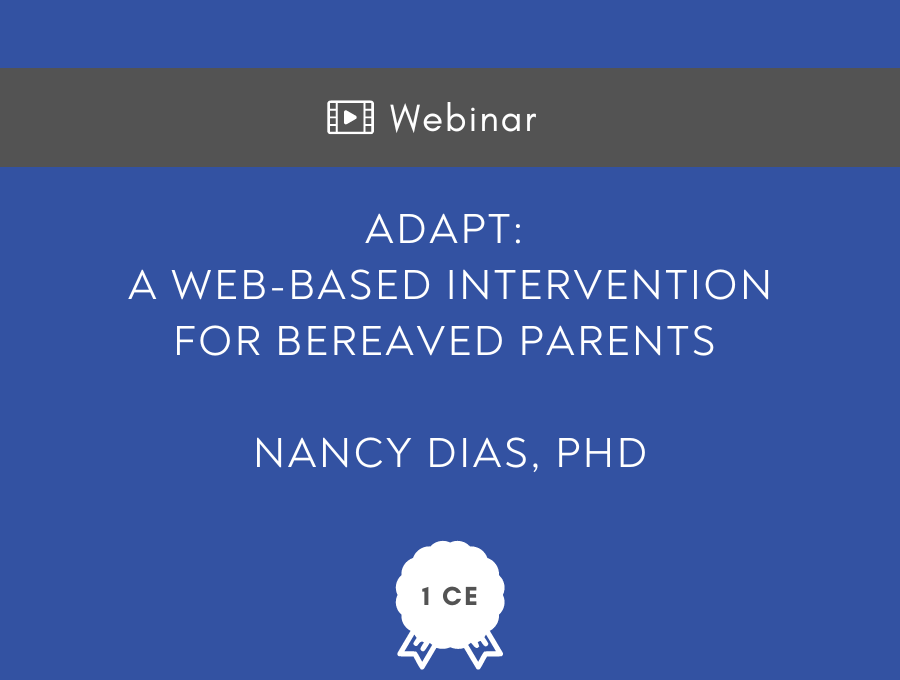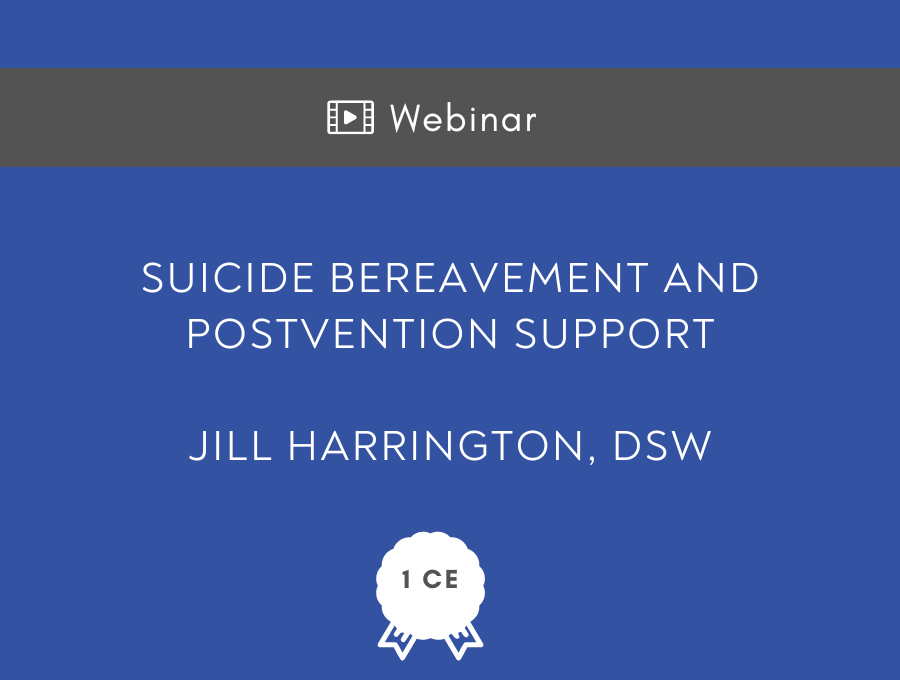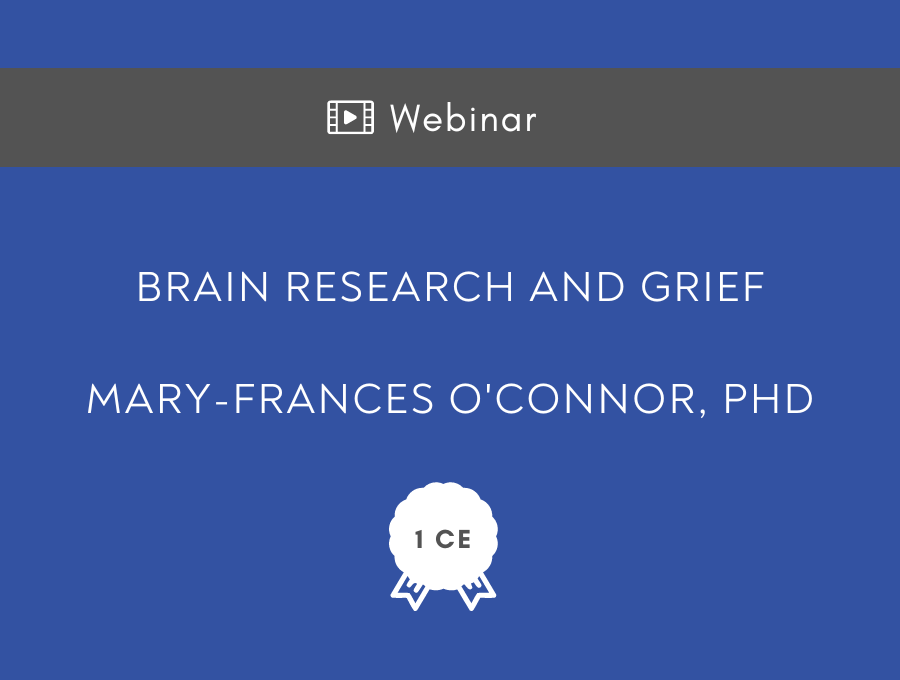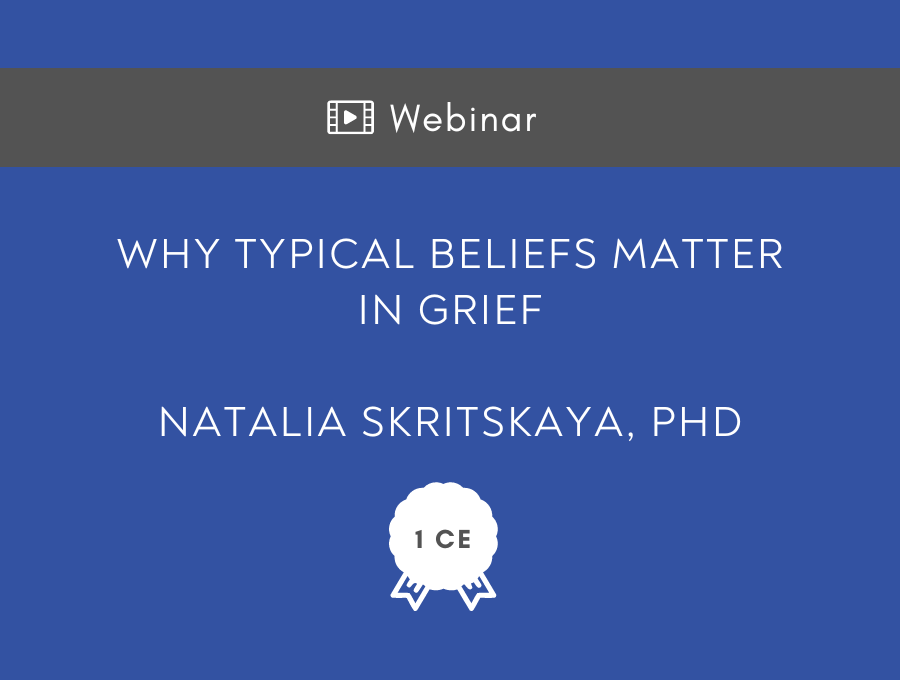Subtotal: $30.00
Loss, resilience, and prolonged grief – 1 CE Hour
$30.00
The death of a loved one is difficult for everyone. But research has consistently shown marked individual variation in the course and severity of grief reactions. In this talk I will first discuss the limitations of traditional perspectives on loss that focus only on psychopathology (i.e., prolonged and severe grief reactions). I will then describe my research of the past 25 years that has mapped prototypical trajectories of response to traumatic and aversive events, including loss. This work has identified different patterns of prolonged grief, recovery, and resilience. Finally, I will consider recent controversies about the nature of prolonged grief by comparing different conceptualizations of grief using both latent trajectory modeling and analyses of symptom networks.
Product Description
The death of a loved one is difficult for everyone. But research has consistently shown marked individual variation in the course and severity of grief reactions. In this talk I will first discuss the limitations of traditional perspectives on loss that focus only on psychopathology (i.e., prolonged and severe grief reactions). I will then describe my research of the past 25 years that has mapped prototypical trajectories of response to traumatic and aversive events, including loss. This work has identified different patterns of prolonged grief, recovery, and resilience. Finally, I will consider recent controversies about the nature of prolonged grief by comparing different conceptualizations of grief using both latent trajectory modeling and analyses of symptom networks.
Webinar recorded on February 6, 2019.
Learning Objectives
- Gain comparative knowledge about and critique different approaches to the study of bereavement reactions
- Distinguish prototypical patterns and key symptoms of grief reactions
- Apply knowledge of divergent response patterns to clinical practice or in mental health settings
About the Presenter
George A. Bonanno, Ph.D. is a Professor of Clinical Psychology, Director of the Loss, Trauma, and Emotion Lab, and Director of the Resilience Center for Veterans and Families at Columbia University’s Teachers College. Professor Bonanno’s interests center on the question of how human beings cope with loss, trauma and other forms of extreme adversity, with an emphasis on resilience and the salutary role of flexible emotion regulatory processes. Professor Bonanno’s empirical and theoretical work has for over 25 years centered on defining and documenting resilience in the face of loss or potential traumatic events, including disaster, loss, terrorist attack, bio-epidemic, traumatic injury, life-threatening injuries medical events, and military deployment, and on identifying the range of psychological and contextual variables that predict psychopathological and resilient outcomes. His research has been funded by the National Institutes of Health, National Science Foundation, the Rockefeller Foundation, and the U.S.-Israeli Binational Science Foundation, and is featured in various print, television, and radio media. He most recent book is The Other Side of Sadness (Basic Books).
Continuing Education
American Psychological Association
The Center for Prolonged Grief at Columbia School of Social Work is approved by the American Psychological Association to sponsor continuing education for psychologists. The Center for Prolonged Grief maintains responsibility for this program and its content.
Note: Many state boards recognize the APA approval. Please check with your state licensing board.
New York State Education Department
- NYSED State Board for Psychology recognizes the Center for Prolonged Grief as an approved provider of continuing education for licensed psychologists (#PSY-0150).
- NYSED Board for Social Work recognizes the Center for Prolonged as an approved provider of continuing education for licensed social workers (#SW‐0727).
- NYSED State Board for Mental Health Practitioners recognizes the Center for Prolonged Grief as an approved provider of continuing education for licensed marriage and family therapists (#MFT-0080).
Note: Non-NYS social workers, marriage and family therapists, and other professionals, please check with your state licensing board. Many states have recognized our continuing education programs as we are at a CSWE-accredited institution and part of a regionally accredited university.
